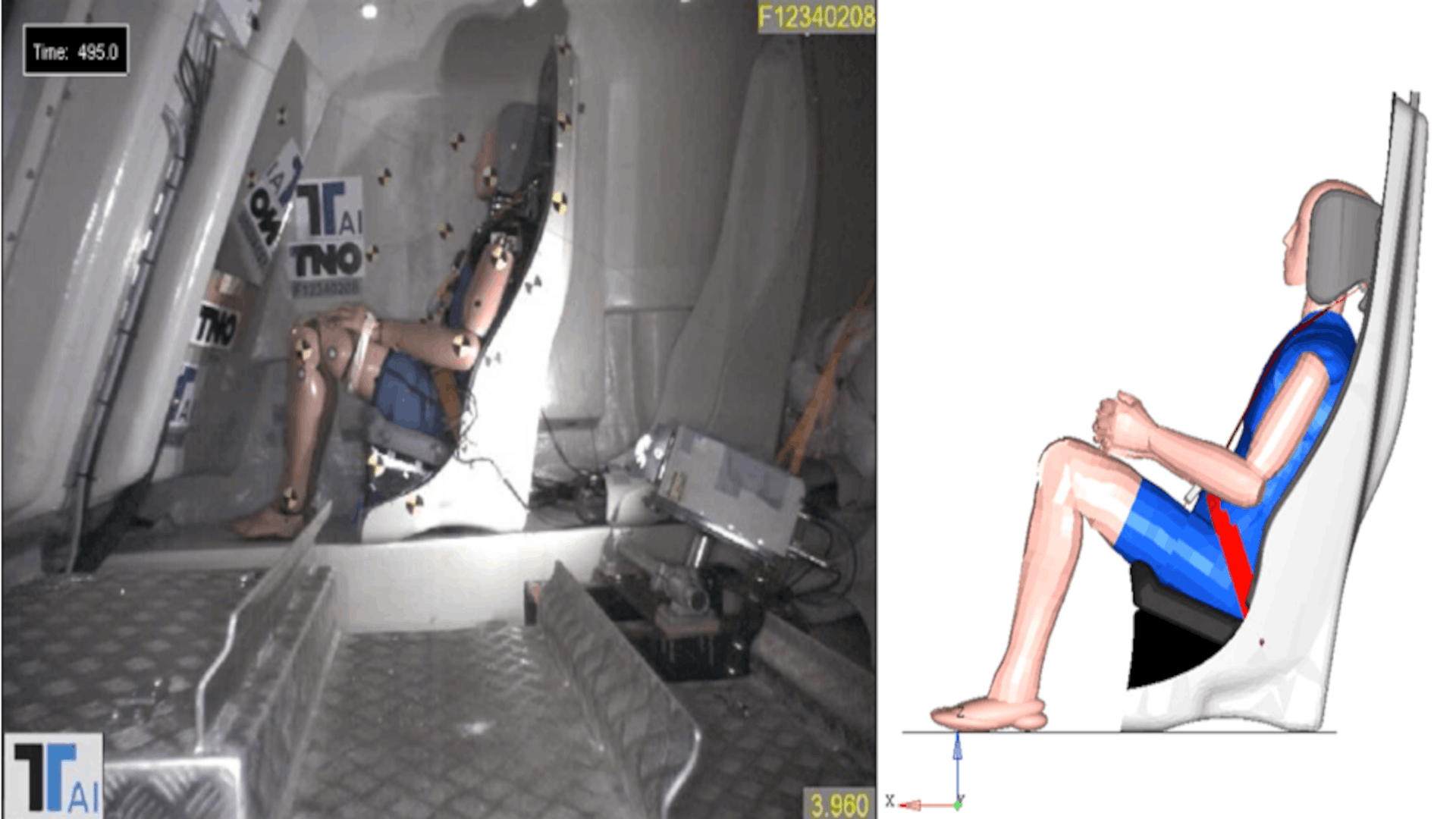Many people in the offshore industry rely on free fall lifeboats to safely evacuate in emergencies. However, this maneuver introduces numerous risks. Thanks to technological advances, today, the industry can leverage digital tools to simulate the free fall and its impact on occupants to develop the best designs, avoiding costly and dangerous tests.
The Norwegian DNVGL- ST-E406 is the industry standard for lifeboats, and it allows the usage of digital data to demonstrate the safety performance of the lifeboat. This webinar explains the simulation method developed by Dutch company TNO and how the simulation technology available in Simcenter is used to assess and improve these lifeboats' safety.
Minimize injury risk in lifeboat launching procedure
Free-fall lifeboats installed on oil platforms are used to swiftly evacuate oil workers in emergency conditions that prohibit the more common use of helicopters. The boats are dropped from various heights at a forward pitched boat angle, creating forward momentum and minimizing the subsequent occupant impact severity. Nonetheless, the resulting accelerations can create injury-inducing conditions, particularly when weather, waves, and even damaged platform effects are considered. Therefore, each boat requires an assessment of occupant injury risk to protect occupant safety during the lifeboat launching procedure.
Injury risk assessment for lifeboat occupants
Based on expertise from crash safety in the automotive domain, TNO developed a methodology to perform an injury risk assessment for lifeboat occupants. A numerical model developed and validated against real-life hardware tests using an Anthropomorphic Test Device (ATD or crash-test dummy) is at the core of the methodology. Subsequently, this numerical model can be used to evaluate occupant injury risk for various drop scenarios based on the acceleration loads induced on the lifeboat seat during a lifeboat drop.
In the webinar, Esra van Dam (TNO) will explain an overall drop simulation methodology, including a comparison of validation results to an actual drop test.
Lifeboat launch simulation
In this webinar, you will learn how to calculate the boat acceleration loads for the safety assessment and perform FEA simulations for the structural integrity assessment using the Simcenter toolchain. Furthermore, you will get insights into lifeboat launch simulation and how TNO uses Simcenter in their lifeboat occupant safety assessment for lifeboat manufacturers and offshore companies.
This webinar will touch on the following topics:
- Lifeboat safety requirements
- Simcenter simulation tool chain
- Simulation model development
- Model validation with full-scale tests
- Injury risk simulation studies to improve safety
How do you test lifeboats?
There are many different variables when a lifeboat launching procedure takes place. How do you test lifeboats? Lifeboat testing is done with safe and reliable simulation software, a digital solution that includes variables to ensure occupant safety among adverse sea conditions. Register for this on-demand webinar to watch a demonstration from industry experts.
Meet the speakers

Michiel Unger
Business Development Manager

Esra van Dam
Research Scientist
